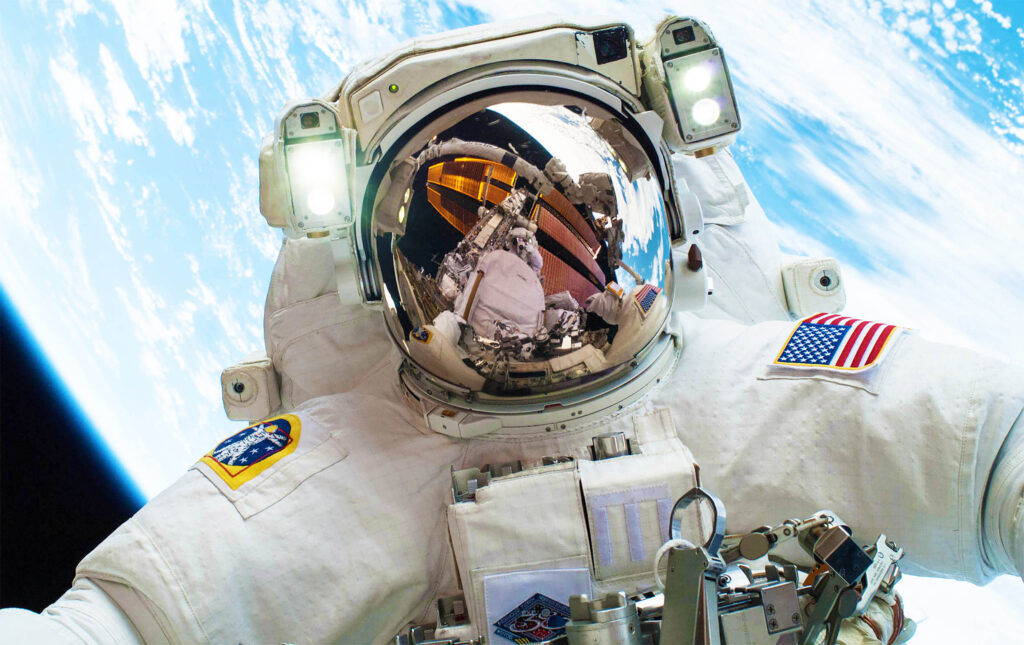Space is the final frontier, a fascinating space that has attracted human curiosity and exploration for decades. But astronauts who step outside Earth's atmosphere face unique challenges, one of which is the profound effect space travel has on the immune system and the human body.
Researchers at the Buck Institute on Aging have revealed insights into how weightlessness affects the immune system, offering potential solutions for astronauts and even those of us still here on Earth.
The human immune system
To fully understand the impact of this research, a fundamental understanding of the immune system is essential.
Our bodies have an incredible defense system – a complex, interconnected network of cells, tissues and organs that work tirelessly to protect us from a constant stream of external threats.
These threats in the form of bacteria, viruses and parasites are constantly looking for opportunities to invade our bodies and cause harm.
But our immune system is not a passive bystander: it is an active, dynamic force constantly monitoring our internal environment, identifying potential dangers and mounting a targeted response to neutralize them.
The main players in this defense system are lymphocytes and monocytes, immune cells that circulate in the blood.
Astronauts' immune systems
Throughout the history of space exploration, astronauts have consistently reported a variety of immune-related complications during and after their missions.
These complications include increased susceptibility to infections, making astronauts more susceptible to illnesses caused by a variety of pathogens.
Additionally, astronauts have experienced reactivation of latent viruses, such as the varicella zoster virus, which causes chickenpox and shingles.
Additionally, increased skin sensitivity has been observed, which manifests as rashes and inflammation.
Alarmingly, these immune-related issues can occur even during short spaceflights, highlighting the rapid and profound impact that microgravity can have on the immune system.
The fact that even a short stay in space can cause these complications underscores the urgency of understanding and mitigating these risks for the health of astronauts venturing beyond Earth.
Effects of Microgravity
Previous studies have provided evidence suggesting that microgravity, the near-weightlessness experienced in space, can have a detrimental effect on the function of immune cells.
However, the specific biological mechanisms underlying this disorder remain unclear.
To fill this knowledge gap, a research team at the Buck Institute, led by Dr. David Furman and Dr. Daniel Weiner, initiated a study to investigate the effects of simulated microgravity on human immune cells.
Their goal was to uncover the underlying processes that contribute to immune dysfunction in microgravity and ultimately develop strategies to protect astronauts' health during space missions.
Simulating space on Earth
Using equipment developed by NASA to mimic the near-weightless conditions of space, the researchers exposed immune cells from healthy volunteers to simulated microgravity for 25 hours.
Through advanced techniques, including sequencing and super-resolution microscopy, the researchers gained a detailed picture of how cells' function changed in this unique environment.
What they found was intriguing and unexpected: the changes they observed in the astronauts' immune cells during spaceflight closely resembled those seen during the aging process on Earth.
The findings suggest a potential link between microgravity and immunosenescence, opening new avenues for research into both space medicine and strategies to combat age-related immune decline.
The mechanism of the universe and the immune system
Dr. Weiner, an expert in mechanistic immunology – the study of how environmental forces affect immune cell function – highlighted the important role of mechanical forces in orchestrating immune responses.
“Interestingly, changes in mechanical forces seem to modulate immune cell function,” says Weiner, which is part of astroimmunology.
Studying changes in the immune system in space is linked to machine immunology, which paves the way for a deeper understanding of how the immune system can survive in space.
Searching for a solution: space nutritional supplements
With a better understanding of the mechanisms of immune dysfunction in microgravity, the researchers turned their attention to potential countermeasures.
Using machine learning techniques, the researchers identified a number of compounds that may protect immune cells.
A compound called quercetin, a natural plant pigment found in a variety of fruits and vegetables, has emerged as a promising candidate.
Quercetin has been shown to reverse many of the changes caused by microgravity and protect immune cells from damage.
Future research into space travel and the immune system
The Buck Institute team's findings have far-reaching implications.
“These findings define the characteristics of immune cell changes under simulated microgravity with correlations to spaceflight exposure in mice and humans. This study helps to define future research directions in machine and space immunology and provides opportunities to develop countermeasures to maintain normal cellular function in space,” Dr. Weiner emphasized.
Dr Furman added that the study provides a comprehensive map of human biology in the extreme environment of space and will be a valuable resource for the scientific community.
This study paves the way for exploring similarities between the immune changes induced by spaceflight and those associated with ageing, which may lead to interventions that could reverse age-related immune dysfunction.
Crossing the final frontier
As humanity continues its journey into space, it becomes increasingly important to understand and mitigate the health risks associated with space travel.
This research not only paves the way for protecting the immune systems of astronauts, but could also have potential benefits for people on Earth, particularly in the area of aging research.
It seems the universe holds clues not only to the mysteries of the universe, but also to the complexities of our own biology.
—–
Liked this article? Subscribe to our newsletter for more fascinating articles, exclusive content and updates.
Check it out with EarthSnap, a free app brought to you by Eric Ralls and Earth.com.
—–



